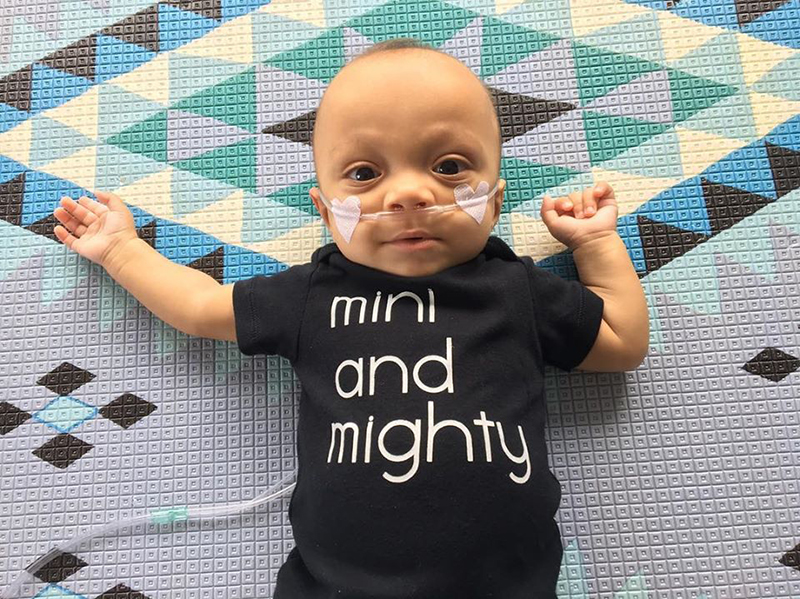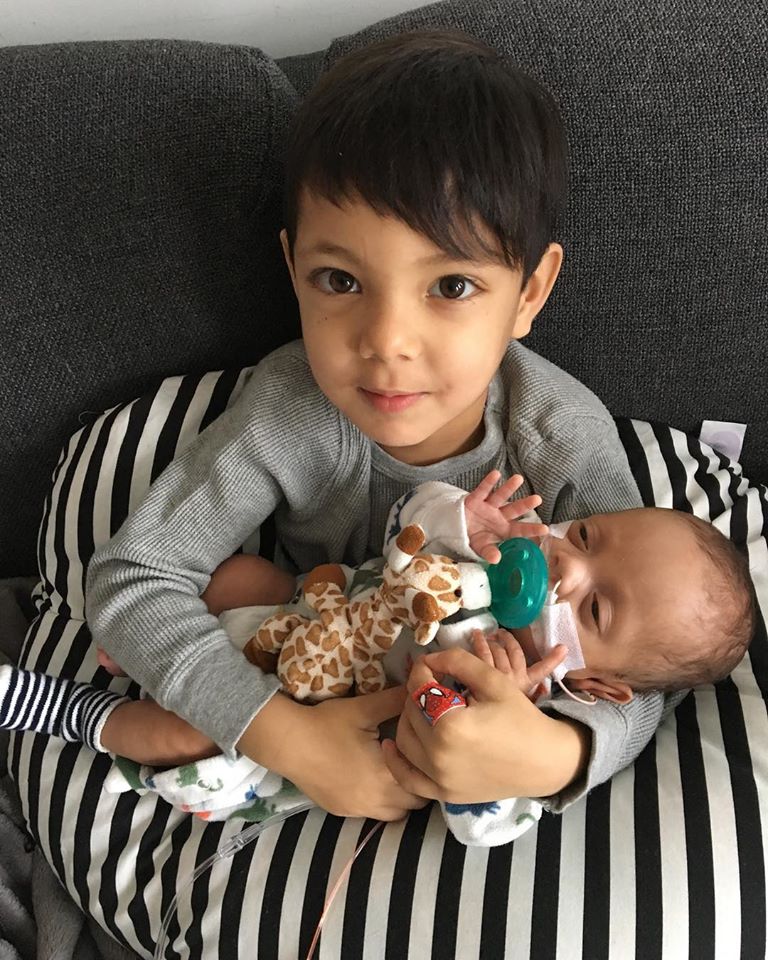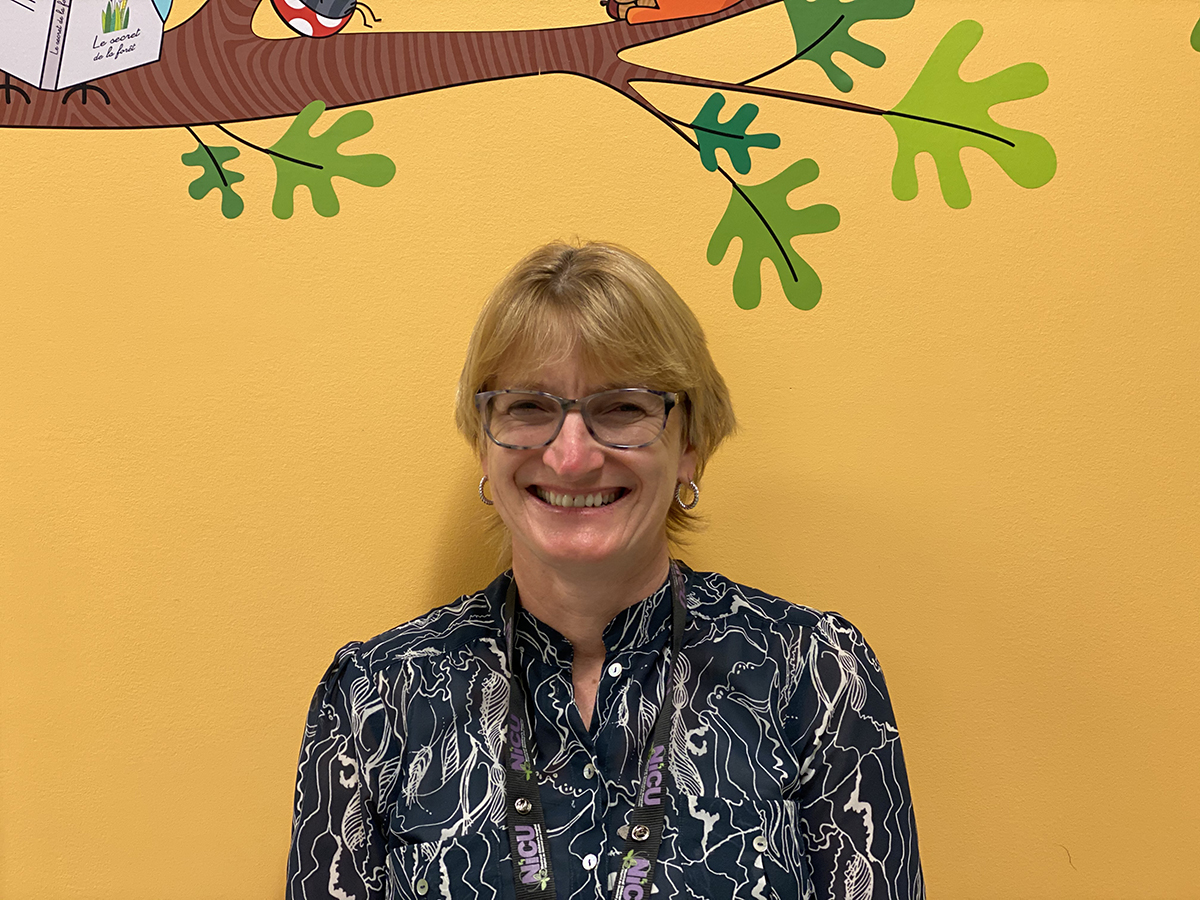Milo : a little bundle of energy
Wednesday, September 09, 2020

My son was barely born when the Children’s Neonatal Intensive Care Unit (NICU) staff had already nicknamed him “The one-pound miracle”.
Milo is a micro-preemie, born at a mere 25 weeks. You can say my husband and I won the Preemie Lottery. Twice, within three years. To tell you the truth, the second time around, it’s much harder… You get to re-live everything you had been through with your fi rst baby, but this time, knowing all the hardships that lay ahead. I honestly did not think I could do it again, especially with a toddler to attend to at home.
I’m so thankful I had you and the Children’s by our side because it’s been a rocky ride. And it’s not over yet…
I gave birth at the Royal Victoria Hospital and they immediately wheeled my baby over a few meters down to the NICU. He couldn’t breathe on his own. I saw him as tubes came out of every part of his fragile body. Let me tell you, when you see your baby turn blue because his heart rate drops, those few minutes of trying to bring him back feel like a lifetime. You feel useless as the room fills up with professionals trying to save your baby.
I was once again in pain from a C-section but I could see doctors, nurses and specialized staff working as a team, everyone knowing precisely the role they had to play. The equipment, the latest training, the expert staff … it’s all made possible thanks to donors like you who believe that children deserve a second chance at life. Yes, the Children’s saved Milo’s life. So did you.
And that wasn’t all …
When we finally brought our baby home after 108 days at the NICU, we were also able to bring home oxygen, a monitor and a lot of specialized equipment. Thanks to your donations and to the Children’s leadership in complex care, parents like us can now care for our child at home while still relying on 24/7 expert care. They are the cream of the crop.
Donors like you contribute to this real game-changer! Growing up with his big brother Zayn has helped Milo to learn to walk and talk. He is now a real bundle of energy! Milo is not “a sick kid”; he’s “a kid”. And he is doing better than expected.

But the spectre of Covid-19 hitting our family really scares me. After all that we’ve been through, I don’t want a coronavirus to be the thing that takes my kid out.
Milo has scar tissue in his lungs because he was on a respirator for so long. Every time he’s exposed to a virus, he needs to be rushed to the hospital for big intakes of oxygen. He is also followed closely for a heart problem.
As you can see, we still rely on the Children’s talented specialists and innovative research, and donors like you who give them the means to stay on the leading edge of care and technology.
Caring people like you have allowed my boy to grow stronger. I know I speak for many families like mine when I say how invaluable your support will be to help us get through the months ahead.
Please, make your gift today and give kids like Milo the best chances for a brighter future.

Anissa, Milo and Zayn’s mom
P.S. When your child is fighting for his life, you want him surrounded by the most talented and caring staff. More than ever, in the context of Covid-19, your gift today will help us get through the months ahead.

Q and A with Sharon Taylor-Ducharme, Head Nurse of the NICU
What is the most difficult part of your job?
Parents of preemies like Milo’s can be here for months, even over a year, so they can easily become discouraged because often setbacks occur before there is progress. When you are born at 25 weeks, everything is important: feeding, respiratory status, etc., so integrating the parents into the care is crucial. But now with Covid-19, social distancing and wearing masks contributes to a sense of isolation for the parents, which is hard both for them and for the staff.
How do donors help?
Donors have allowed the Children’s to become a true maternal child centre. Their support has gone to programs like the breastfeeding program and the simulation lab where we can provide ongoing specialized training. As cutting-edge technology and research evolve, donors play a vital role in ensuring that these fragile patients can benefit from the best care possible.